第65章 LETTER 8(7)
It has been said by men of great weight in the councils of Spain,and was said at that time by men as little fond of the house of Bourbon,or of the French nation,as their fathers had been,that if England and Holland had not formed a confederacy and begun a war,they would have made Philip the Fifth as Spaniard as any of the preceding Philips,and not have good a endured the influence of French councils in the administration of their government:but that we threw them entirely into the hands of France when we began the war,because the fleets and armies of this crown being necessary to their defence,they could not avoid submitting to this influence as long as the same necessity continued;and,in fact,we have seen that the influence lasted no longer.But notwithstanding this,it must be confessed,that a war was unavoidable.The immediate securing of commerce and of barriers,the preventing an union of the two monarchies in some future time,and the preservation of a certain degree at least of equality in the scales of power,were points too important to England,Holland,and the rest of Europe,to be rested on the moderation of French,and the vigor of Spanish councils,under a prince of the house of France.If satisfaction to the house of Austria,to whose rights England and Holland showed no great regard whilst they were better founded than they were since the will,had been alone concerned;a drop of blood spilt,or five shillings spent in the quarrel,would have been ton much profusion.But this was property the sale into which it became the common interest to throw all the weight that could be taken out of that of Bourbon.And therefore your lordship will find,that when negotiations with d'Avaux were set on foot in Holland to prevent a war,or rather on our part to gain time to prepare for it,in which view the Dutch we had both acknowledged Philip king of Spain;the great article we insisted on was,that reasonable satisfaction should be given the emperor,upon his pretensions founded on the treaty of partition.We could do no otherwise;and France who offered to make the treaty of Ryswic the foundation of that treaty,could do no otherwise than refuse to consent that the treaty of partition should be so,after accepting the will,and thereby engaging to oppose all partition or dismemberment of the Spanish monarchy.I should mention none of the other demands of England and Holland,if I could neglect to point out to your lordship's observation,that the same artifice was employed at this time,to perplex the more a negotiation that could not succeed on other accounts,as we saw employed in the course of the war,by the English and Dutch ministers,to prevent the success of negotiations that might,and ought to have succeeded.The demand I mean is that of "a liberty not only to explain the terms proposed,but to increase or amplify them,in the course of the negotiation."I do not remember the words,but this is the sense,and this was the meaning of the confederates in both cases.
If the former,king William was determined to begin the war by all the rules of good policy;since be could not obtain,nay since France could not grant in that conjuncture,nor without being forced to it by a war,what he was obliged by these very rules to demand.He intended therefore nothing by this negotiation,if it may be called such,but to preserve forms and appearances,and perhaps,which many have suspected,to have time to prepare,as I hinted just now,both abroad and at home.Many things concurred to favor his preparations abroad.The alarm,that had been given by the acceptation of the will,was increased by every step that France made to secure the effect of it.Thus,for instance,the surprising and seizing the Dutch troops,in the same night,and at the same hour,that were dispersed in the garrisons of the Spanish Netherlands,was not excused by the necessity of securing those places to the obedience of Philip,nor softened by the immediate dismission of those troops.The impression it made was much the same as those of the surprises and seizures of France in former usurpations.No one knew then,that the sovereignty of the ten provinces was to be yielded up to the elector of Bavaria;and every one saw that there remained no longer any barrier between France and the seven provinces.At home,the disposition of the nation was absolutely turned to a war with France,on the death of king James the Second,by the acknowledgment Louis the Fourteenth made of his son as king of England.